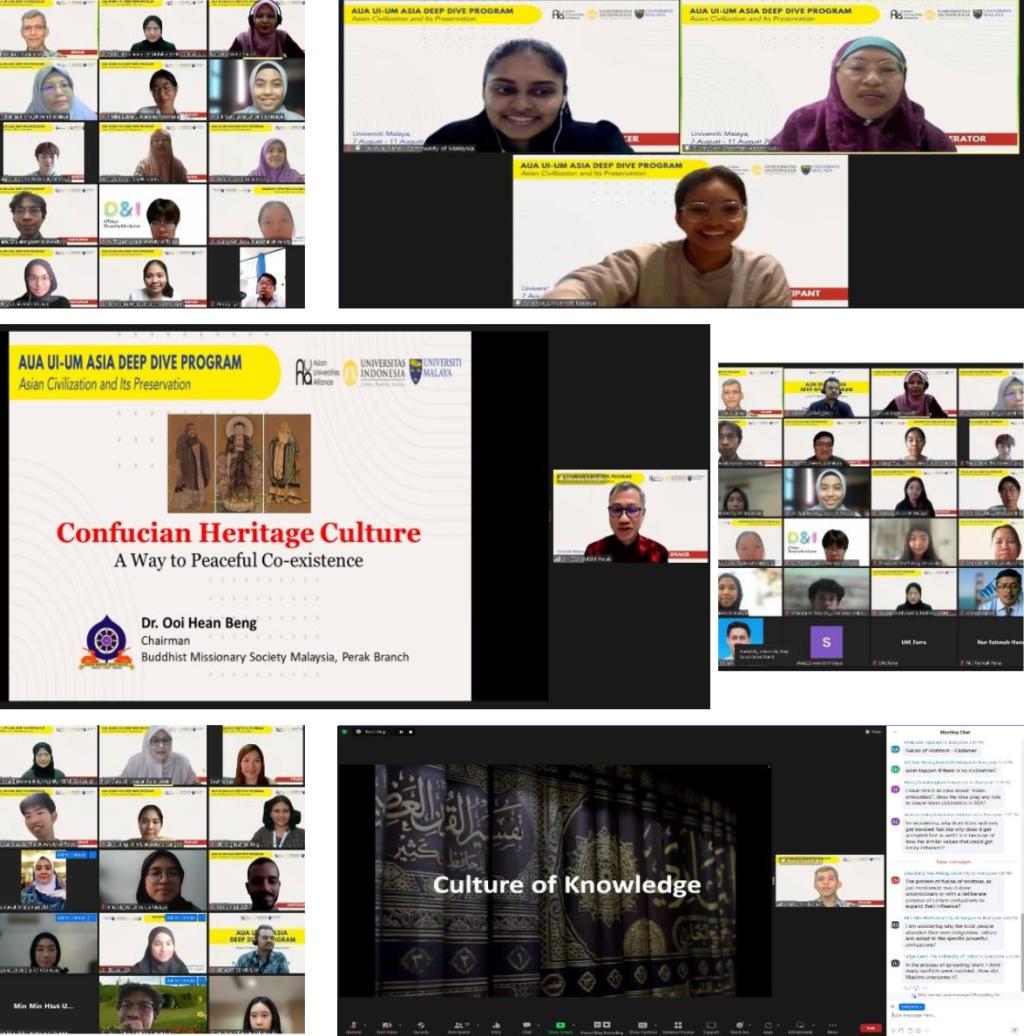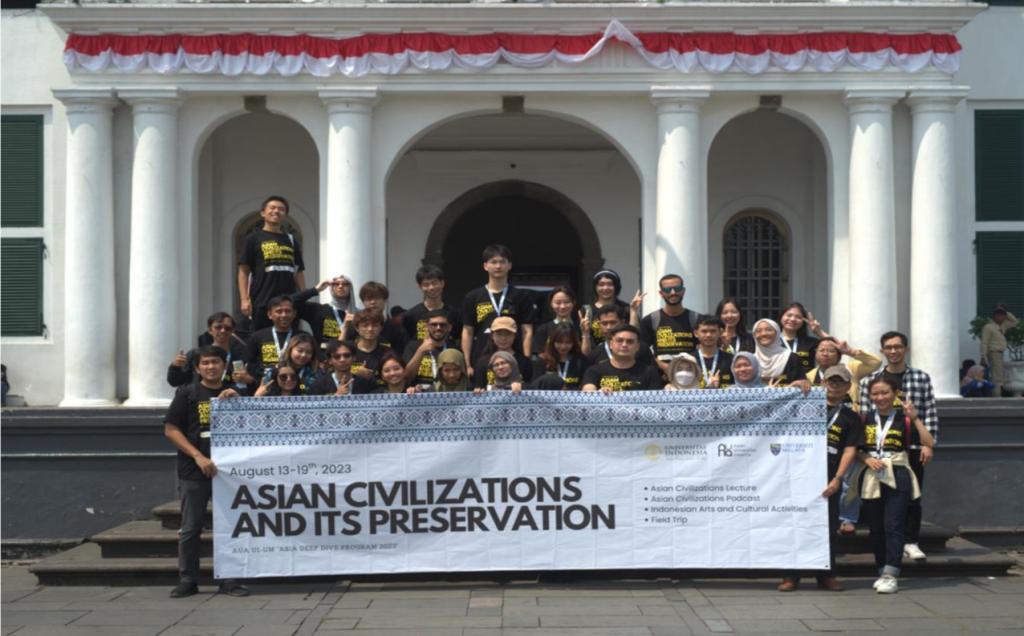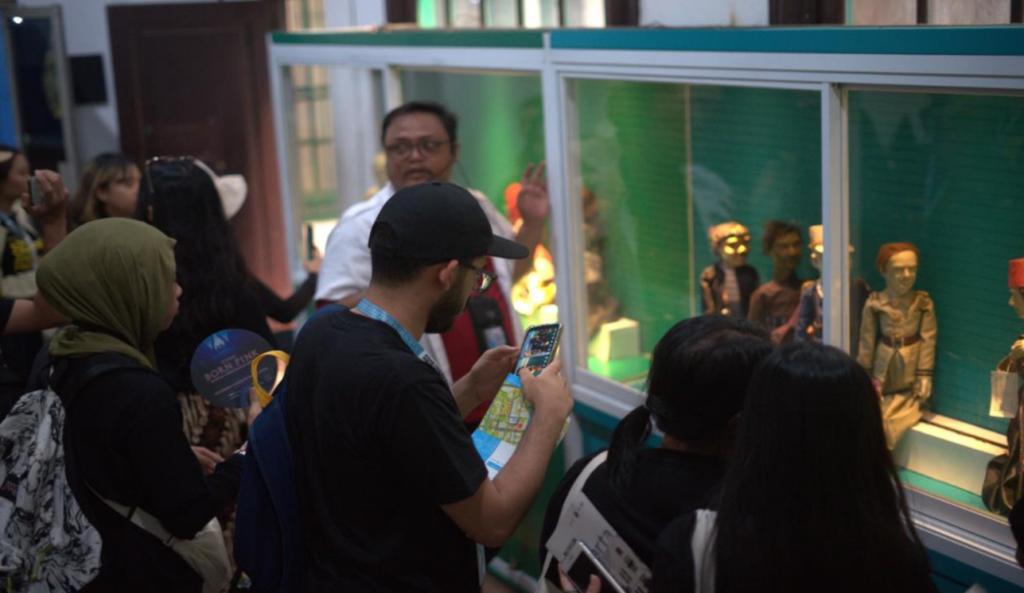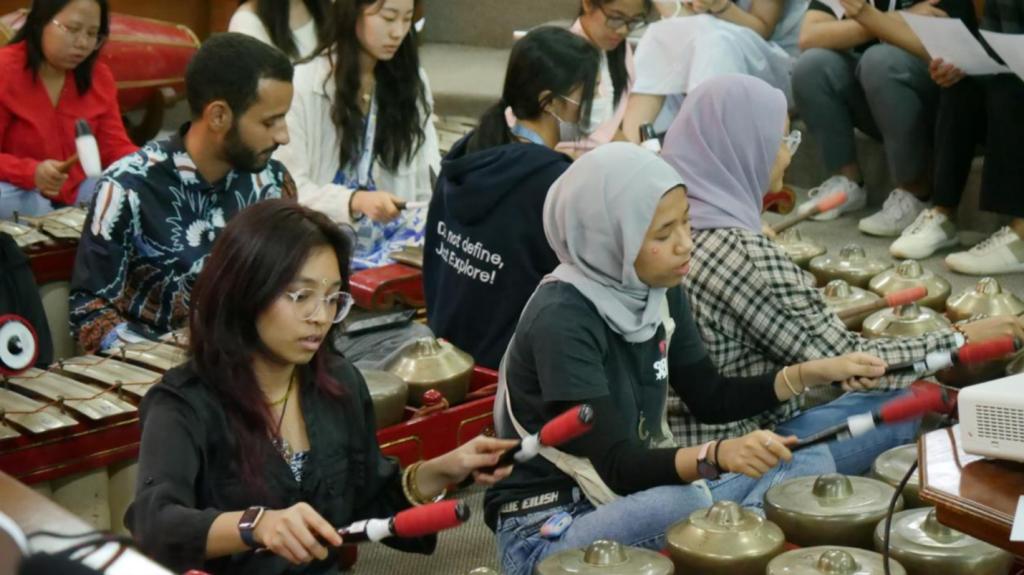"AUA UI-UM Deep Dive Program 2023: Asian Civilization - Understanding, appreciating & celebrating Asian heritage: Uniting cultures, Inspiring connections" is a cutting-edge academic program Universiti Malaysia launched in partnership with Universitas Indonesia in August 2023. The purpose of this program, which ran in two parts first, online from August 7 to August 11 in Universiti Malaysia and offline from August 13 to August 19 in Universitas Indonesia, is to increase awareness and comprehension of the rich and complex tapestry of Asian cultures. With the participation of 28 student leaders from various universities under the Asian Universities Alliance (AUA), the program investigated the diverse range of cultures, societies, and historical advancements in Asia. As a result, the future development projection was one objective deliberately delineated to guarantee a thorough comprehension of Asian civilization.
In the first part, the program's framework was carefully thought out to encourage conversation and cultural interaction despite the limitations of a virtual setting. The program combined lectures, forums, and activities to explore the socio-economic aspects of the region, enhancing intercultural communication. Its objectives were to cultivate intercultural understanding, respect, and networking, with an eye on building partnerships around Asian civilization themes.
Emphasizing global citizenship, self-awareness, and personal growth, the initiative featured discussions on Asian civilization's essence, dialogues for peaceful coexistence, and showcases of Asian art diversity. It also addressed gender issues within the Asian context and contemplated an Asian Renaissance. In total, the program offered a rich mix of engaging and educational sessions aimed at nurturing cooperation, understanding, and a generation of informed, globally connected individuals.

Following the engaging online sessions hosted by Universiti Malaysia, the program transitioned into its second phase at Universitas Indonesia. The Center for Research on Society and Culture, Faculty of Humanities, held its continuation on-site from August 13 to August 19, 2023, intending to solidify the prior foundation. With the participation of the same 28 student leaders from the AUA members, the program was designed to provide a comprehensive and immersive experience. Based on what they learned in the previous half, the primary goals focused on helping participants have a more nuanced understanding of the many Asian civilizations and cultures by diving into the region's complexity through a hands-on approach.

The week was jam-packed with educational events, such as lectures on "Islamic Civilization and Indonesia," "Indonesia and Chinese Civilization," "Empowering Youth Leadership for civilizational dialogue on sustainability," and "Indonesian culinary." There were also creative forums, cultural dialogues, podcasts, art workshops, and field trips to museums. Field trips to Museum Wayang, Museum Sejarah, and Museum Nasional were particularly memorable since they gave participants a close-up look at Indonesia's rich cultural legacy.

In addition, hands-on activities introduced attendees to Indonesian arts and culture, including learning Javanese gamelan and practicing batik. Utilizing these exercises, the program aimed to motivate the participants, empowering them to envision a future in which cultural awareness and respect are fundamental, therefore fostering a feeling of global citizenship and interdependence among the following generation of leaders.

Yudai Onizuka from the University of Tokyo said, “Through this online session, I felt that we can build a peaceful relationship no matter what religion and civilization the other party is. And I learned how to realize peaceful coexistence.” Shahnaz from Universiti Malaya believes that the program allowed her not only to discover, but to also be more appreciative and respectful to others' cultures and beliefs.
(Writer: Ehab ALETOUM)